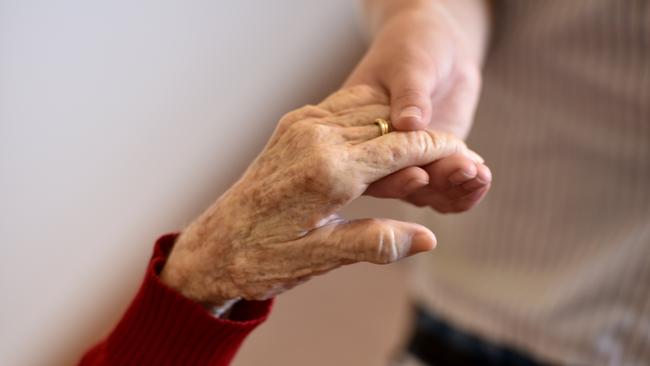In-home aged-care services should be provided as needed like healthcare, says report
The nation’s leading ageing research body says governments should fund in-home aged care like the health system, where older people can access it as they need it.

Older Australians must be able to access aged-care services while living in their own home in the same way they receive health care, the nation’s leading ageing research body says.
Just as a person can see a GP if they are ill, or go to hospital if things are more serious, those who require aged care at home should have similar access to personal care or domestic support services as they are needed, the National Ageing Research Institute says.
In a soon-to-be-published position paper, “Transforming the System of Home Care for Older Australians”, NARI says sticking with the current system of in-home aged-care packages rationed by the government will inevitably create a build-up of demand as the population ages, piling pressure on hospital and residential aged-care capacity.
“The system of aged care should be needs-based, not rationed, similar to the way in which the healthcare system works,” the NARI paper concludes. “Older people should not have to wait to receive the care that they urgently need.”
NARI director of clinical gerontology Frances Batchelor warned that the federal government’s additional 80,000 home care packages worth $6.5bn over two years, announced in the 2021 budget, “will only provide temporary relief”.
“Without substantial change to the ration-based system, the wait list will only build up again as more and more people require aged care at home into the future,” Associate Professor Batchelor said.
“Older Australians want to remain at home, but the current aged-care system is not providing adequate access to services and supports to help them remain at home.”
Aged care is one of the federal government’s biggest funding commitments, at about $22 billion per year. In less than a decade it is projected to be 5 per cent of all federal spending.
The aged-care royal commission found earlier this year that delivering a system that allows people to stay in their own homes for as long as they are physically able, with services such as personal care and help with cleaning and shopping, not only meets the preferences of older Australians but is also more cost effective over the long term.
The NARI paper agrees with the royal commission recommendation that funding should be more closely linked to individual needs rather than the inflexible current model of bundled funding allocated to a limited number of older people.
“Funding needs to be better distributed so it is allocated in a more cost-effective way, to ensure every person in need of care at home is able to receive it, when they need it,” Professor Batchelor said, noting this would bring particular challenges in the workforce area.
She also warned of a more fundamental issue, that seeking funding and support within the aged-care system was simply too complex for older people and their families to navigate.
“My mother is 86 and living at home. She is independent, fit and active, but if she starts to decline me and my siblings have to work out what to do, and it’s hard.
“It’s difficult to gain entry into the system, there is a waiting period for her to have an initial assessment and then a further wait for the services to start, such as cleaning or shopping,” she said. “Who picks up the pieces in the meantime? It has to be her family. And what if she has a fall, that sends her into hospital, which is exactly where you don’t want to be.”



